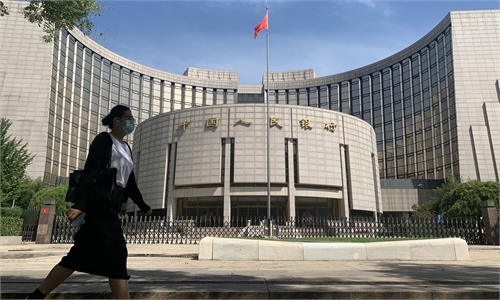Counter-Espionage Law won't affect foreign enterprises' legitimate operations: ministry

An education campaign for the Counter-Espionage Law in Nantong, East China's Jiangsu Province on November 1, 2023 Photo: CFP
China's newly revised Counter-Espionage Law targets only a few espionage activities that threaten national security. The law is not aimed at normal business activities and won't affect foreign enterprises' legitimate investment and operations in China, the Ministry of State Security said on Wednesday, in response to smears of the law.
The revised Counter-Espionage Law is more precise, clear-cut and transparent, which embodies progress in China's legal system, the ministry said in a statement on its WeChat account.
Security is imperative for development and the foundation for maintaining an open and stable business environment, the statement said. It's a common and legitimate practice for countries to enforce laws against espionage activities and maintain national security, it said.
People who hype the law as damaging the business environment in China have ulterior motives and are seeking to talk black into white, it said.
Experts said that some foreign media speculation about foreign capital flowing out of China and smears by some foreign forces about China's business environment are part of the Western public opinion war.
"The so-called outflow of foreign capital from China is repeating an old tune. Although China's economic recovery has faced uncertainties this year, the country's economic development has institutional advantages, with the accumulation of long-term industry and supply chains," Wang Peng, an associate researcher from the Beijing Academy of Social Sciences, told the Global Times on Wednesday.
"Foreign investors remain optimistic about China's economic development prospects and business environment, and the rumors will be self-defeating," Wang said.
The nature of the market economy is an economy ruled by law, and a clear and transparent legal system is the fundamental guarantee for investment and business operations, the ministry said, noting that one important purpose of the amended law is to clarify the boundary of legal and illegal operations, and help enterprises better operate in line with Chinese laws.
China is committed to high-level opening-up, and has implemented multiple laws and regulations such as the Foreign Investment Law in order to build a world-class, market-oriented business environment governed by a sound legal system, the statement said.
At this year's China International Import Expo, the number of attending Global Fortune 500 companies and industry leaders hit a record high of 289, with the value of tentative deals up 6.7 percent year-on-year, reaching $78.41 billion. In the first 10 months of this year, 41,947 foreign enterprises were newly established in China, up 32.1 percent year-on-year, official data showed.
These developments reflect foreign enterprises' confidence of investing in China while underscoring China's bright economic prospects, the ministry said.
The ministry also stressed that the revised Counter-Espionage Law is not aimed at normal business activities and won't affect all legal foreign investment and operations in China.
Espionage activities are serious crimes, which are different from businesses' normal investment, operations and research and development activities. Those activities can be clearly differentiated from normal business dealing, it said.
Those who distort Chinese law enforcers' legal anti-espionage efforts as "cracking down on foreign enterprises" are engaging in an intentional distortion of the law, out of their gangster logic, the statement read.
Those who take a jaundiced view of China's Counter-Espionage Law and rely on "the US-style concept" will get a wrong answer, it said.
China's laws give clear definitions of "national secrets" and "business secrets". The seven kinds of state secrets listed in the State Secrets Protection Law don't involve business secrets.
The six espionage activities listed in the Counter-Espionage Law don't involve so-called collecting commercial information in a normal way, according to the ministry.
The ministry accused the US of defining stealing business secrets as a kind of espionage crime in its Economic Espionage Act of 1996, abusing the law to crack down on its international competitors. The US even "fabricated evidence" to cook up about 10 cases of China-related economic espionage activities.
China's newly revised Counter-Espionage Law came into effect on July 1. The new law improves the definition of espionage activities, includes the protection of documents, data, information and items related to national security and interests, and adds provisions that consider joining espionage organizations as espionage activities.
Global Times

